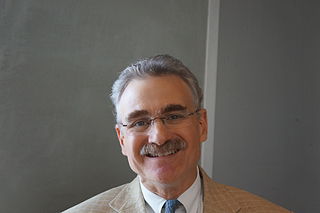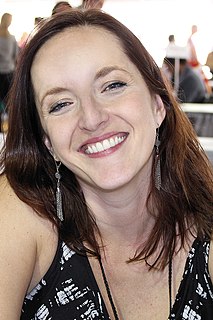A Quote by Tim O'Reilly
Programming is how we talk to the machines that are increasingly woven into our lives. If you aren't a programmer, you're like one of the unlettered people of the Middle Ages who were told what to think by the literate priesthood. We had a Renaissance when more people could read and write; we'll have another one when everyone programs.
Related Quotes
Filmmaking materials are in the hands of more people now than ever before. I would like to think that the more people have these tools, the more people will learn how to use them, it's another argument I would argue for, personally, for art's education. Because there are kids who aren't that literate in screen language and they've got to know how people select shots, how people edit audio, how people combine things to make what they see on the screen. It would be like the 15th century or the 16th century in Germany, and somebody amends a printing press and you don't know how to read and write.
In western civilization, the period ruled by mysticism is known as the 'Dark Ages' and the 'Middle Ages'. I will assume that you know the nature of that period and the state of human existence in those ages. The Renaissance broke the rules of the mystics. "Renaissance" means the "rebirth". Few people today will care to remind you that it was a rebirth of reason - of man's mind.
My sister's a musician. Everyone else in our family, it's either academics or artists of one kind or another. And those are the people that I think I like to hang out with, too. I think, you know, they're always interesting; they lead interesting lives, and I think they're important for everyone to read about because everyone is an artist in a way.
In this respect a program is like a poem: you cannot write a poem without writing it. Yet people talk about programming as if it were a production process and measure "programmer productivity" in terms of "number of lines of code produced". In so doing they book that number on the wrong side of the ledger: we should always refer to "the number of lines of code spent".
I hope our granddaughters and grandsons grow up knowing that they are not and have never been third-party observers of the priesthood. The blessings of the priesthood, which 'are available to men and women alike', are woven in and through and around their lives. Each of them is blessed by sacred ordinances, and each of them can enjoy the blessings of spiritual gifts by virtue of the priesthood.
People have always told tales. Long before humanity learned to write and gradually became literate, everybody told tales to everybody else and everybody listened to everybody else's tales. Before long it became clear that some of the still illiterate storytellers told more and better tales than others, that is, they could make more people believe their lies.
We were so wholly one I had not thought That we could die apart. I had not thought That I could move,—and you be stiff and still! That I could speak,—and you perforce be dumb! I think our heart-strings were, like warp and woof In some firm fabric, woven in and out; Your golden filaments in fair design Across my duller fibre.
What I think people should realize is that programs like Social Security, programs like Medicare, programs like the Veterans Administration, programs like your local park and your local library - those are, if you like, socialist programs; they're run by [and] for the public, not to make money. I think in many ways we should expand that concept so that the American people can enjoy the same benefits that people all over the world are currently enjoying.
Unemployment insurance, abolishing child labor, the 40-hour work week, collective bargaining, strong banking regulations, deposit insurance, and job programs that put millions of people to work were all described, in one way or another, as 'socialist.' Yet, these programs have become the fabric of our nation and the foundation of the middle class.
































